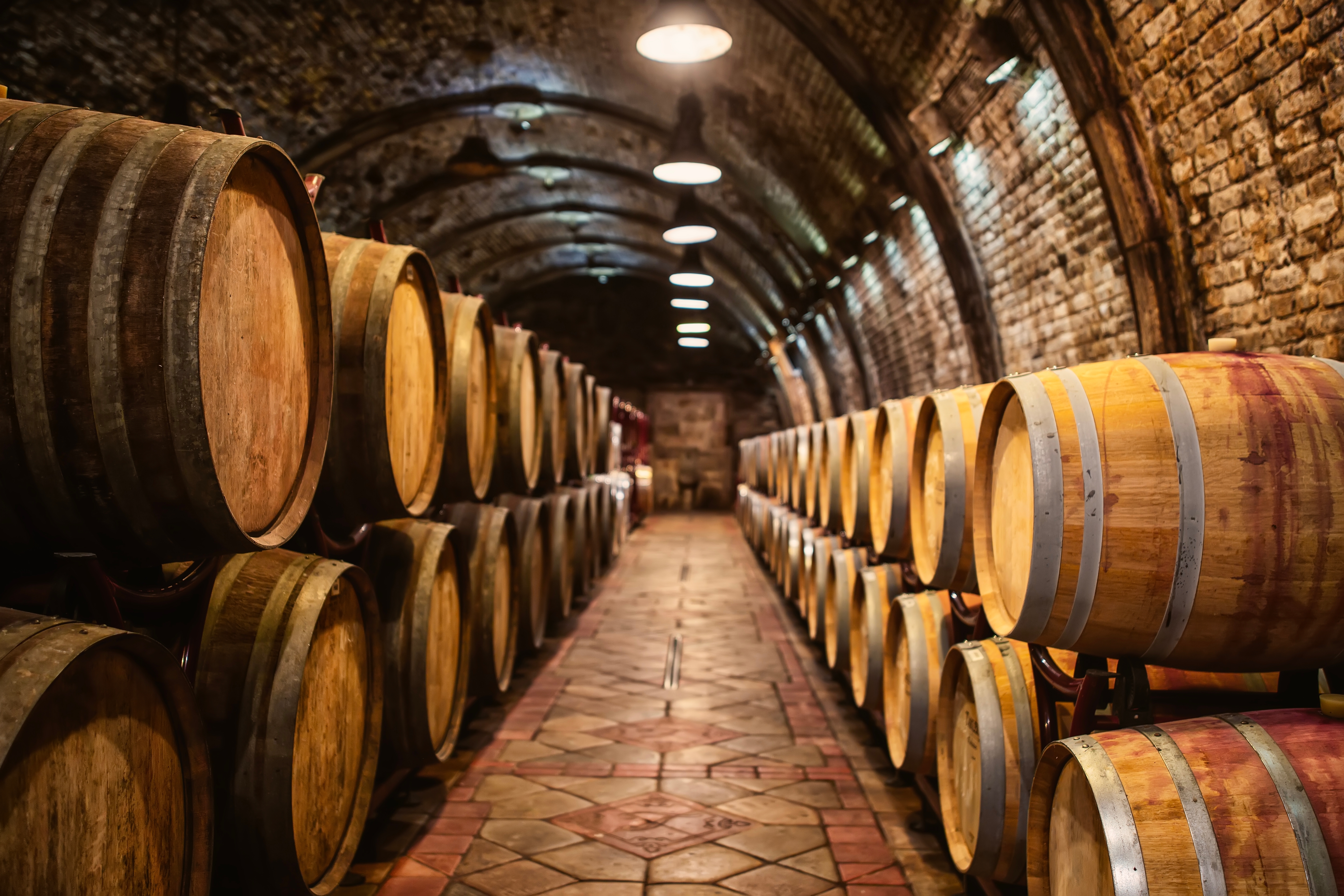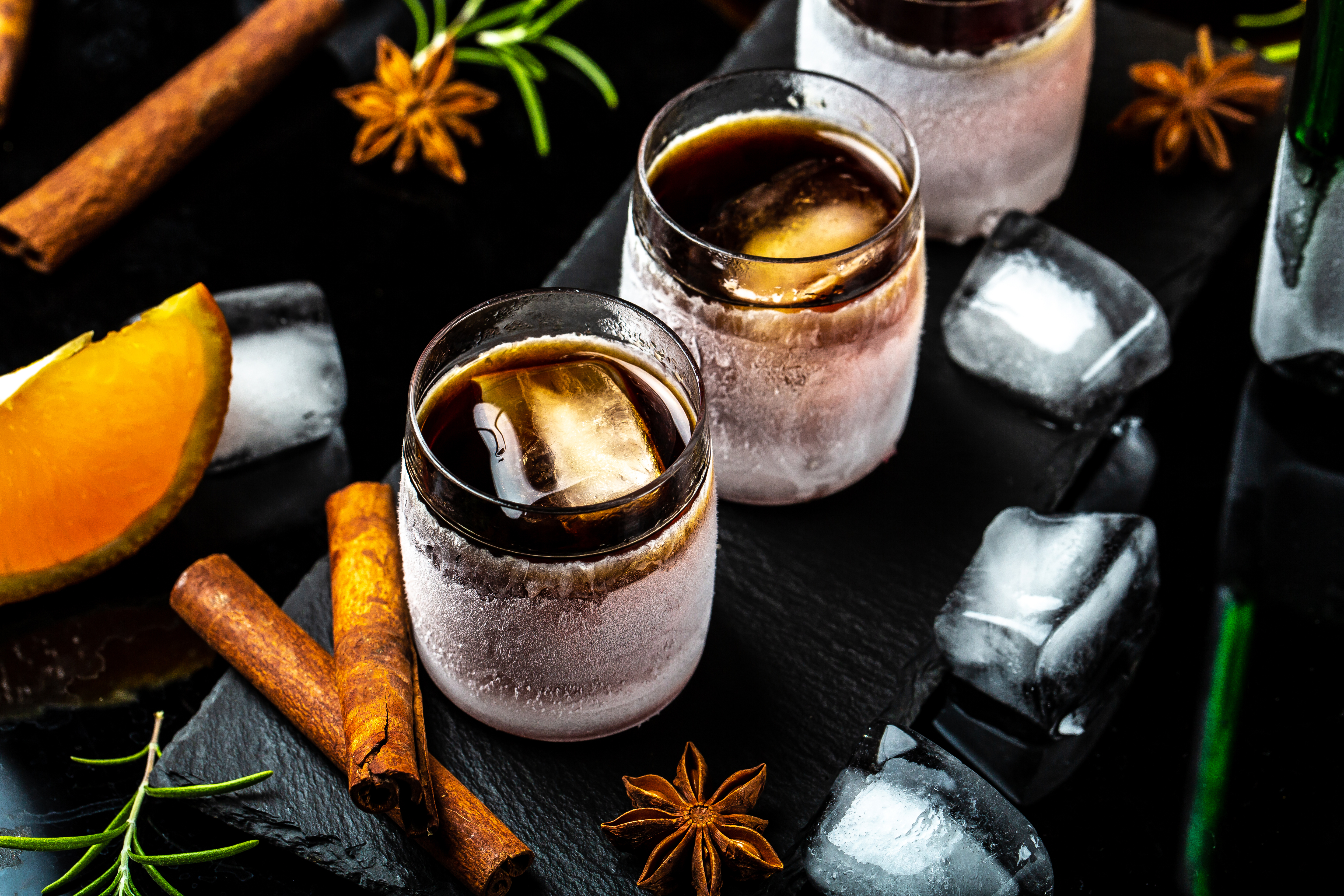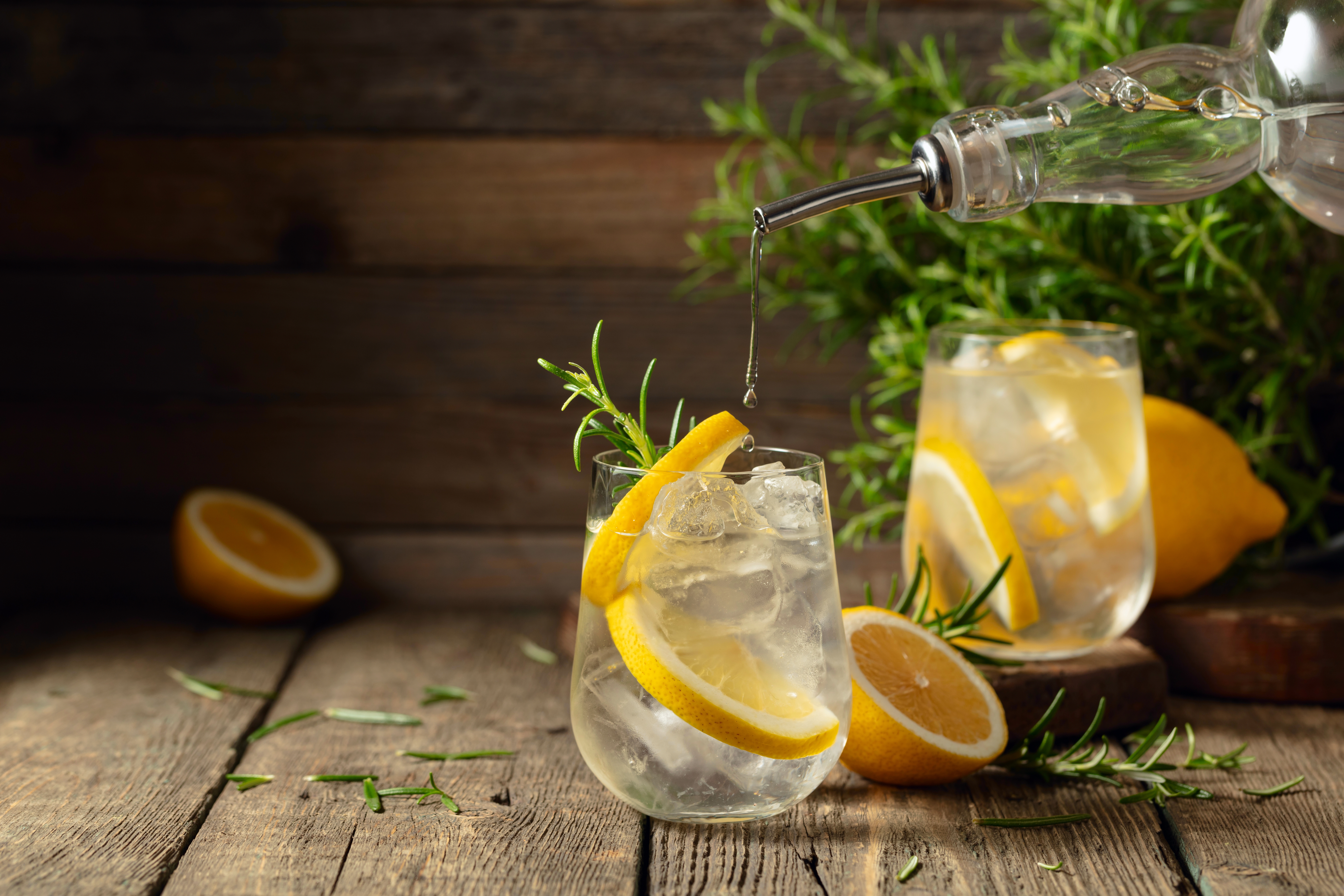Free digital copy
Get Speciality Food magazine delivered to your inbox FREE
Get your free copy
There was a time when British spirits (other than whisky, of course) were considered a poor relation in retail. Sitting alongside prestigious brands from the continent, our, largely, novelty offerings of bought-in grain spirits with syrupy flavourings were often relegated to corner shops, or high-volume settings like bars and clubs, where they’d give revellers a frisson of excitement on a night out.
But the tide has turned. A new wave of distilleries doing things the ‘right way’, has sprung forth. And producers and export partners are sitting up and taking serious notice of our homegrown offerings.
In 2023 it’s reported more than 50 new distilleries were unveiled – up 8.7% from the previous year – pushing the number of registered businesses up 42.8% higher than before Covid.
This is, say drinks specialists and producers, a great time to be showcasing the might of the sector as you look to bring ‘newness’ and excitement to your shelves, especially as consumers continue to find value in the ‘local’ and ‘British’ message.
Spirits and distilling expert Alan Powell, founder of the British Distillers Alliance, has been instrumental in the growth of the sector. His work from the ground roots up in UK legislation over the past few decades has helped newcomers cut through red tape, allowing them to find their feet.
“The easements I’ve shaped with HMRC and industry over the years have made a significant difference,” he says proudly. These include no requirement of security to operate duty suspension, a smoother application process with a new law due to come into force in March 2025 so producers no longer need a license to distill or rectify spirits, no dwell time restrictions, better credit terms with Customs, and no obligation to provide stock returns. “All these things stack up,” he adds.
The ‘genesis’ of the British spirits boom, Alan says, was the founding of Sipsmith in 2009, which laid a foundation for other gin makers looking to break the mould, and step away from the drink’s staid, ‘mother’s ruin’ image.
“From 2011 we saw a significant number of new producers come in. That all flowed from the work Sipsmith was doing, and also what the Americans were doing in craft spirits too,” Alan explains, adding most of the business models in these early days were not true distillers, but rectifiers of compounds, redistilling base spirits with flavourings.
Though Alan believes the gin market is saturated, and has tailed off over the last 12 months, he thinks this, in turn, has paved the way for newcomers to be bolder, trying new things, looking beyond gin, and breaking into other categories.
He is seeing a lot of development in Scottish whisky, with the same passion and desire to create something extraordinary trickling into the English whisky market. “English whisky has developed significance particularly since The English Whisky Company was set up. People seem to want to pursue and develop the market to the point that we now have a distinct category of English whisky, and the English Whisky Guild has been created to pursue its protected definition.” he says.
In 2011 there were just a few of these kinds of businesses, but they’ve come on “leaps and bounds” since Covid, with an explosion of distillery developments recorded during 2020 and beyond.
Often their driver, Alan says, is a desire to represent a local area. To “put their flag in the sand”. After all, if you have the name of a county, town or city on your bottle, it’s a strong proposition for tourists, and for bars, hotels and retailers in your region to give your products a coveted listing.
The bottom line, he adds, is “you’ve got to have a market. There’s competition with the big brands, and you’re going to have to fight for your place”.
Lisa Halstead, buyer at Master of Malt, says she doesn’t see the growth of emerging British spirits brands slowing down in the foreseeable, with the retailer listing 126 new spirits from the UK in the past year, and 26 new British brands listed within the same timeframe.
She agrees with Alan that the gin market has slowed, but not stopped, making up 26% of new products listed in the past 12 months, while English whisky “continues to lead forward and account for 25% of products listed, but over 50% of the total volume of new English spirits listed since June 2023”.
Master of Malt has seen great success with exclusive casks from Bimber, and special releases from Lakes, Bimber and The English.
“This is definitely a category to watch,” she says, “as a lot of new make was laid into barrels during the gin boom, and will now have reached the three-year maturation period for first release as a whisky. As the liquid continues to mature, we expect to see more and more special releases followed by aged statements.”
Lisa says brands are being more adventurous and leaning towards other trends in the market too. “We have seen the launch of the first brandy made in England, some tequila-based flavoured liqueurs, and a big increase in the number of English rums over the past few years. Honey also seems to be a bit of a trend amongst English spirits, with the launch of gins, honey liqueurs, honey-flavoured tequila spirits and even a honey wine.”

One of the most exciting new entrants to the British spirits world is Port of Leith Distillery in Edinburgh, founded by two lifelong friends (and whisky lovers). The duo, who discovered there wasn’t a single malt whisky in Scotland’s capital at the time, saw an opportunity, and opened the doors in 2023 after a decade of development. During this period they also established a gin distillery, launching the organic certified Lind & Lime Gin brand, which now exports to 27 markets around the world, as well as introducing sherry and Port, sourced from the producers who provide their whisky maturation casks.
Co-founder Ian Stirling says the increase in new Scottish whisky distilleries is very noticeable, with up to 50 having laid roots since the turn of the Millennium. “However, this still pales in comparison to the growth of brands witnessed in the USA, which has over 2,500 whisky distilleries across its 50 states. The barrier to entry in Scotland is much higher, due to the long maturation process required by law, and more could be done by UK government,” he adds, “with tax incentives for smaller producers to support further growth.”
Ian says more recent challenges have been posed by the economic downturn, which has taken a heavy toll on the gin sector in particular, leading to the closure of a number of medium-sized companies.
Nonetheless, he thinks the start-up sector in Scotland, and new distilleries emerging in England and Wales are having the desired effect of driving innovation and quality. “New brands are unhindered by history and tradition, and while they must still respect the Scotch Whisky regulations, they’re free to try new ideas in ways that older, more established brands cannot. There are many exciting new spirits out there. Britain, and more specifically Scotland, has an incredibly powerful reputation for quality around the world. That is an invaluable asset, and one that needs to be constantly nurtured. A healthy, growing start-up sector helps to achieve that.”

A new generation of British rum distillers is sweeping through the nation, with moves away from blending and flavouring spirits from overseas, and towards operating the entire process on UK soil.
Lucy Foster, founder of Decorrum, says the business was created with a vision to tap into the growing desire for British spirits, while moving away from the stereotypical imagery “overused in the industry” such as pirate and nautical theming.
Based in Eastbourne, the makers use 17th Century distilling techniques to create unique blends with British-grown sugarcane and ingredients, with an aspiration to lead premium British rum in the right direction.
“There is a growing excitement in the drinks industry to find locally-sourced, well-made craft and artisanal products,” Lucy explains, “with consumers seeking unique and high-quality spirits over mass-produced options.”
She cites a recent report by Campari Group that the UK ranks now as the third-largest rum market globally, boasting a valuation of £1.17 billion. “This market is expected to experience a significant surge, with a projected 9% increase in volume and a 2% rise in value in 2024. Over the next five years, the ‘premium rum segment’ is forecasted to witness an impressive sales surge of 140%.”
Of notable interest is the growing demand for spiced and flavoured’ rum varieties, which have seen a 6% sales increase over the past two years, with British shoppers purchasing over 10 million bottles of flavoured and spiced rum. The Wine’s & Spirits Trade Association (WSTA) is predicting it will become the largest off-trade category of rum within the next 12 months, Lucy says.
Gin, whisky and rum from Britain are clearly taking off, but what about the outliers? Simon Wright has taken entirely new direction, launching the UK’s first brandy in over 200 years, Burnt Faith, inspired by his visits to the Cognac region. “It’s a huge category with deep roots, but it hasn’t seen much innovation because of the strict regulations in Cognac,” he says. “Brandy has so much potential for depth and complexity, making it the perfect spirit to disrupt and reimagine. Unlike other spirits that have seen a surge of new products and brands, brandy has been relatively stagnant, especially in the UK, until now. That gives us the chance to lead the way and bring something fresh and exciting to the market.”
Simon also believes the rise in interest in British spirits recently can be attributed to consumers seeking out local, sustainable products.
“A lot of British companies are focusing on sustainability and ethical practices, like aiming for B Corp certification,” he explains. “This shows they’re serious about doing business in a responsible way. Consumers are really on board with this shift, looking for products that reflect their values. At Burnt Faith, we’re thrilled to be part of this movement.”
Another trend Simon is noticing is the experience around British spirits, with more people visiting distilleries and showing an interest in how their drinks are made.
“Consumers want to understand the process, know where their drinks come from, and see the accountability behind the brand. It’s all about transparency and connection. Younger generations, particularly Gen-Z, are looking for more than just a product. It’s not enough anymore to just buy a bottle off the shelf, they want to engage with the brand in a meaningful way.”

Paul Abbott, founder of Grasmere Distillery (which makes vodka, gin and whisky from scratch, including the base spirit), says there has been an ‘epidemic’ of ‘fake distilleries’ in the UK. “Shelves are full of ‘white label’ spirits sold here. But, sadly, many are made hundreds of miles away and shipped in on pallets.” Paul adds that “everyone in the trade can see the problem”, with the value of distilling – the jobs, skills, profits, supply chain and event plant and machinery – accrued elsewhere.
This is having the knock-on effect, he says, of taking away a potential economic boom from local manufacturers.
He adds that his home county of Cumbria is known to have some of the best water in England, and some of the most talented folk in food and drink, with the highest concentration of Michelin-star restaurants outside of London. “So, I have to ask, why can’t we, as a region, manufacture more of our own distinctive spirits rather than just shipping the generic stuff up the road that’s the same as everywhere else?”
He believes Scotland got its act together on spirits a long time ago, developing a high-value trade for Scotch whisky, with export numbers that speak for themselves, and thinks English makers need to wake up to this.
“People want authenticity. Drinkers don’t need another variation on a neutral grain, pretending to be homemade, or more industrial alcohol, faking it as local spirit.”
Being a from-scratch distillery takes work, but Paul says it’s worth it, as these businesses can still compete on price. “Despite being small, we are licensed as a full working distillery (as opposed to just a basic compounder or rectifier) and this gives us a very efficient business, without too many transport steps. We can be profitable at a low price point, whereas the ‘white label’ operations cannot. This is key. Craft spirits will never displace national brands if we are a rip-off or a luxury for the rich.”
Grasmere Distillery’s white spirits are based on an old English turnip wine, distilled into high proof vodka, and distilled again with fresh botanicals for gin. The business’s whisky is a five-grain mash with malted and roasted barley, based on a stout beer recipe. And consumers enjoy that authenticity of these products.
“We are finding that consumers are excited about a small distillery doing it right - and they are intrigued by a family business that is genuinely manufacturing,” says Paul, who thinks the boom in smaller distillers in the UK will only continue to succeed and last if it is focused on the unique and the artisan.
“We do not need an explosion of more shiny marketing fronts for what is fundamentally the same basic liquid. People want real grassroots distilling.
“I experience this trend most powerfully when we host tours. Consumers these days are sharp, educated, and interested in tiny details. Is our energy renewable? (It is.) Do we employ people locally? (We do.) Where is our water from? Can they talk to the distiller? (They can.) How do we select our malted barley? What is our barrel entry proof? And so on.”
Paul adds that he is as excited as his customers. “Consumers want the real thing, so long as the price is reasonable. It is a fantastic time to be in the trade.”
Kerry Campbell, co-founder of 8 Doors Distillery in John O’Groats, which is part of the new distillery boom echoes Paul’s thoughts, saying the surge in start-ups in the sector is driven by a growing appreciation for high-quality, handcrafted drinks.
“Consumers are looking for unique, locally-produced spirits with a story behind them,” she says. “As a new distillery, we see this as an exciting time to innovate and connect with customers who value craftsmanship.”
Kerry thinks the future is bright, and she expects to see much more focus on sustainability in the sector going forward, echoing a key purchasing demand from shoppers. “Distilleries will continue to experiment to create diverse product offerings,” she adds. “And a focus on transparency and storytelling from new distilleries will help deepen the connection between those brands and their customers.”
One of the largest regional brewers in the Northwest, Lancaster Brewery, took the opportunity to branch out into spirits during the Pandemic, using the lockdown periods to install a bespoke copper still with columns.
The ethos for the Lancaster Spirits Company is exactly the same as the brewery, says managing director, Phil Simpson, with no shortcuts, no artificial additives, and a focus on quality. Every drop is brewed, distilled, rectified and bottled in Lancaster, using solar panels for electricity, and drawing water from the site’s own well.
The British spirits scene is ‘constantly evolving’, says Phil, adding that new flavour profiles for gins and vodkas are “adding a level of diversity that’s unmatched anywhere”.
“British distillers are often pioneers for new styles, and our products are increasingly sought after for export to all four corners of the world. The British spirit consumer has never had so much choice and such an array of wonderful options.”
This year a new annex with a second copper pot still has been built at Lancaster Spirits Company, alongside warehousing and a whisky-tasting area, all ready for the production of whisky, which will be made from a high gravity barley wort, fermented with a 200-year-old yeast, and double distilled on site.
Phil says the English whisky is a remarkable new world to be a part of. “With Scottish whisky rightfully enjoying an extraordinarily positive global reputation, there’s plenty of space for English whisky companies to utilise the best of Scottish traditions whilst also pivoting to produce more experimental offerings,” he adds.
“Homegrown spirits offer retailers an opportunity to meet consumer demand for local, sustainable, and high-quality products,” says Simon. “By stocking these spirits, retailers can support local businesses, attract more discerning customers, and tap into the exciting innovation happening in the industry. It’s a win-win for both retailers and consumers.”
Kerry says retailers must grab the opportunity to invest in Scottish and UK drinks brands. “Supporting local brands not only helps the local economy and creates jobs in many rural areas, but also meets a growing consumer demand for premium, hand-crafted spirits,” she explains.